How Mississippi's small colleges are working to ensure their viability amid challenges
In the wake of the much-publicized financial crises faced by Birmingham-Southern College, small private colleges and universities across Mississippi have been working hard to remain resilient in the face of their own institutional challenges.
Birmingham-Southern, a private liberal arts college in Alabama that has been in operation since its foundation in 1856, has fallen into financial trouble over the past decade. This financial strain has taken a toll on the college’s endowment funds and enrollment numbers. Speculation of its closing has been rampant, and it has been a political challenge at the state and city level.
Pleas for loans and donations have come to just keep the doors open for another semester.
BSC's President Daniel Coleman said the college was able to maintain its operations for another academic year with the support of a $5 million loan approved this week from the city's council, with additional donations from private donors and other entities.
While donations and larger endowments can “provide a cushion” for challenging times for any institution, Barbara Mistick, president of the National Association of Independent Colleges and Universities (NAICU), said institutions must cultivate their own strategies to overcome tough times.
The NAICU represents 700 private nonprofit colleges in the United States and focuses its work on federal public policies.

“Every institution has to find the right business model meant for their institution. And it’s really important that the programs an institution is offering reflects the community’s needs,” Mistick said.
“People who can figure out the right mixture of programs and create unique niches are able to sustain their institutions. Higher education institutions are key anchors of their community, and it’s worth fighting to help them be successful.”
Mistick said one of the biggest challenges in today’s educational climate is affordability.
“From a public policy perspective, it’s about finding ways to provide enough assistance for students who want to go to college but can’t afford to. And it’s about institutions that want to change the trajectory of students' lives but don’t have enough resources to do that,” Mistick said.
“I think every institution is worth trying to save.”
This looming topic at BSC prompted a closer examination of the financial health and sustainability of liberal arts colleges and small private universities in Mississippi.
Mississippi has seven traditional private four-year universities, with William Carey University in Hattiesburg falling into more of a mid-size range with around 5,500 students and having a medical school. The other six small private colleges — Belhaven University, Millsaps College, Tougaloo College, Mississippi College, Rust College and Blue Mountain Christian University — are more similar to Birmingham-Southern.
Each are working to ensure their stability and success, despite their individual challenges. Here is a look at each:
Belhaven University
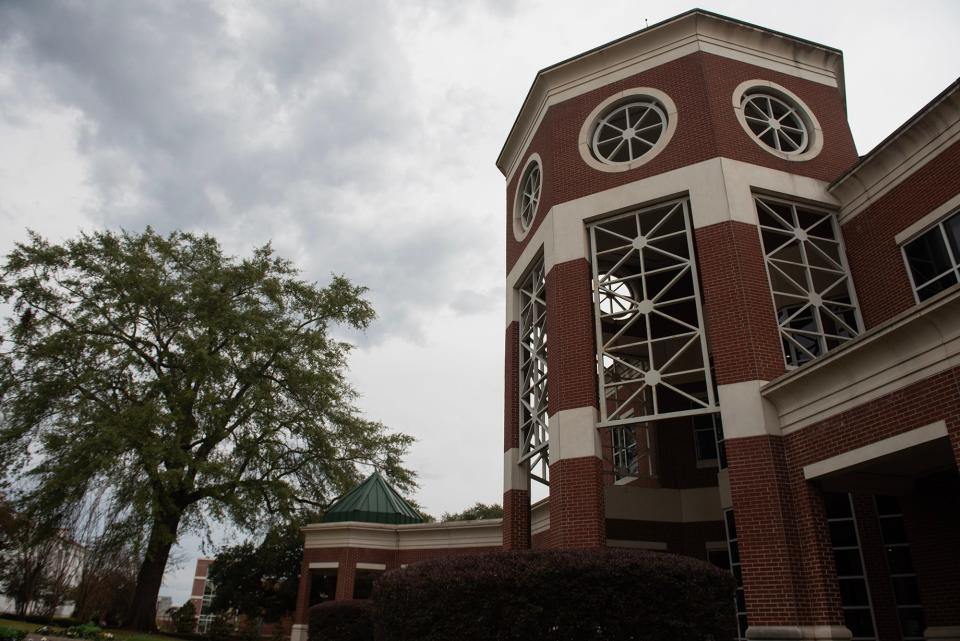
Belhaven University, a private evangelical Christian university in Jackson was founded in 1883 through the merger of Mississippi Synodical College and McComb Female Institute.
In 1894, the college opened under the name Belhaven College for Young Ladies at its current location in Jackson on Peachtree Street in the Belhaven neighborhood with Dr. Lewis Fitzhugh as the president.
In 2010, Belhaven College changed its name to Belhaven University in order to “better represent the institution’s expanded breadth of programs and reach.”
Still, in 2023, President Roger Parrott said the college continues to expand their programs by offering traditional and online courses that cater to the needs of students. Parrott said in the last two years, the university has added an option for students to double major, which can offer a student a wider variety of job opportunities.
“We’ve been on the forefront to serve students who want flexibility in their degrees and degrees that fit the economic market,” Parrott said. “I really feel great about where we are for the future.”
Belhaven receives education awards: Belhaven University receives College of Distinction honor for 12th year in a row
The university’s end of year endowment balance was roughly $6.6 million in 2021, nearly a $1 million decrease from 2020. Parrott said he would like to see this number a bit higher but doesn’t believe that endowment alone can solve the problems that private colleges face.
“Not having a high endowment means we have to provide education that our students want and are willing to pay for,” Parrott said. “But you have to have revenue sources that are repeatable year after year, and you have to have diversified income streams.”
“We love our donors, but Belhaven does not build our budget to live off donor’s annual giving. We raise money for capital projects, special projects and new initiatives. We raise about a million dollars a year for scholarships, on a $60 million operating budget while carrying a $15 million capital debt.”
Parrott said the university is figuring out ways to maintain its “income flexibility”, something he believes a lot of institutions struggle with managing.

“We are very cost conscious,” Parrott said. “I think the challenge private schools have is it’s easy to price out. You just keep raising the tuition over and over until you price tuition off where people can’t afford it.”
With a staff of about 400 full-time employees and 500 adjunct faculty members, Parrott said Belhaven remains committed to providing high level education and supporting to its students and maybe even BSC’s students if necessary.
“Until the college says it's closed and wants help, I’m not going to recruit BSC’s students,” Parrott said. “If they want our help, then we will be very accessible to them.”
“We are very clear on our mission — to serve, not to be served — and the mission is everything,” Parrot said.
According to U.S. News data, Belhaven University had an undergraduate enrollment of 1,501 in the fall of 2022.
Millsaps College
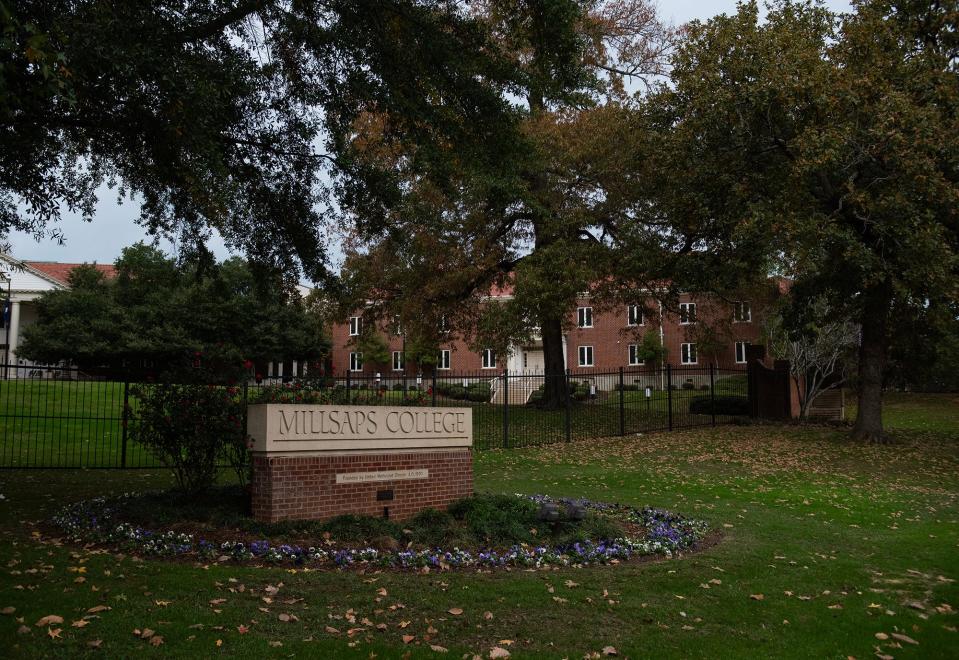
Among the private liberal arts schools in the state, a standout is Millsaps College located in Jackson. The institution was founded in 1890 by Major Reuben Webster Millsaps after returning home from the Civil War.
Since then, Millsaps has become one of the state’s most notable private liberal arts colleges. According to the U.S. News and World Report's 2024 rankings, the college leads the state as the top liberal arts college.
Interim President Keith Dunn said achievements such as the U.S. News report and others are success stories. He said Millsaps is still committed to maintaining the “academic rigor” and demonstrating that “Millsaps is the place where excellence meets opportunity.”
Part of Millsaps commitment is focused on securing financial support. In 2021, the last published data, Millsaps end-of-year endowment balance was roughly $98.5 million. Dunn said he was proud of the endowment number the college has reached.
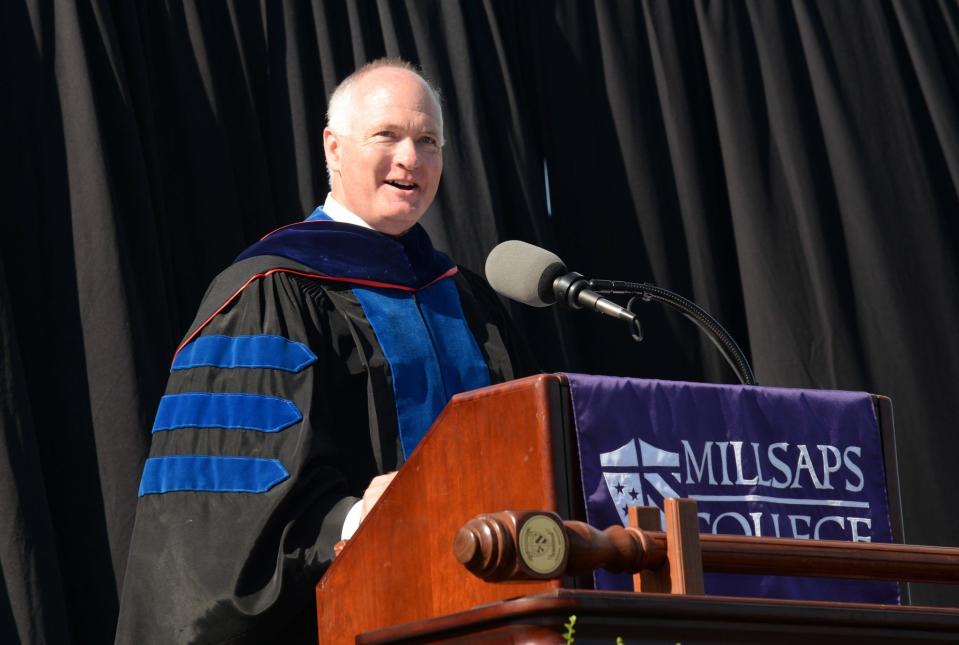
“The endowment in 2010 was $79 million and the endowment today is more than $110 million,” Dunn said. “That’s nearly a 40% increase in the last 13 years. It shows that we have been really good stewards and financially responsible.”
“It’s also really important for us that the improvements to the Millsaps experience be funded through endowment growth and fundraising efforts, instead of passing on increased costs to our students and families.”
Four years ago, under the leadership of former president Rob Pearigen, the topic of whether Millsaps was doing enough to stay afloat was a matter of discussion. This came after student enrollment declined, forcing cuts in programs.
In 2019 Millsaps downsizes: What's happening at Millsaps College? Declining enrollment forces cuts, frustrating alumni and students
At the time, the college removed three majors (music, religion and education) as well as downsizing others, frustrating alumni and students. The college also saw enrollment numbers down from a high of 1,200 students in the 1900s to 850 in 2019.
According to the National Center for Education Statistics in Fall 2022, the yield (enrollment rate) of Millsaps is 13%, while the acceptance rate sits higher at 68%. When a school can get its admitted students to enroll, tuition revenue increases and can make the college more selective.
When asked if the institution would like to see the yield increase, Dunn provided a simple answer: yes.
“We are always seeking to recruit the best and most diverse student body possible, and we certainly want the yield rate to increase to around a 20% rate.”
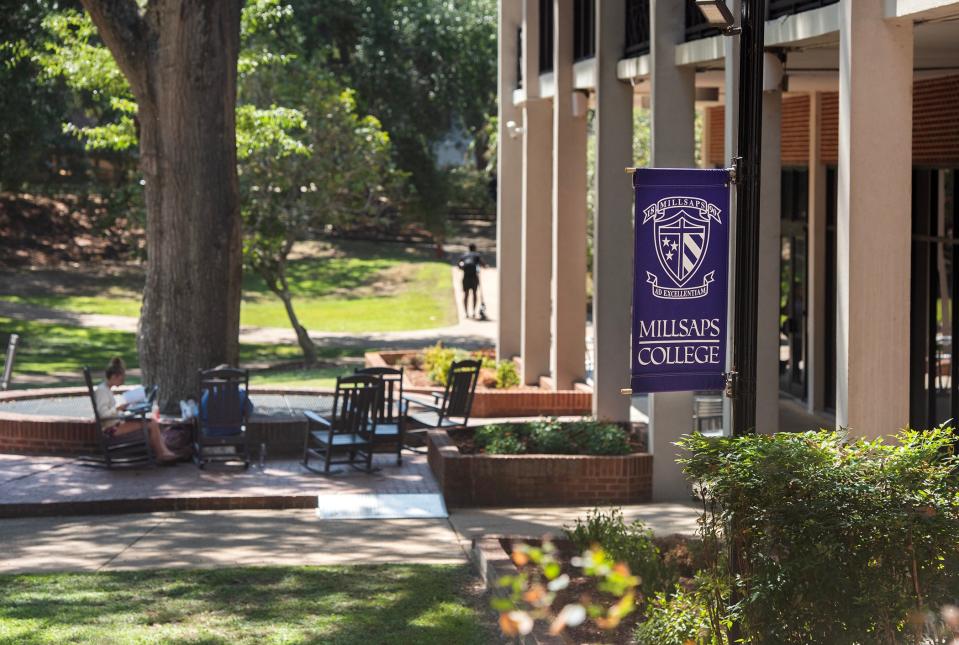
While Millsaps has experienced its own share of declining enrollment numbers similar to Birmingham Southern, Dunn said recruiting students at BSC is not a focus but more so a possibility. He said he was glad that BSC found the means to continue standing. Millsaps enrolled around 160 freshmen this fall.
According to U.S. News data, Millsaps has 637 undergraduate students as of 2022.
Dunn said as Millsaps moves forward, he believes the future is “bright and exciting.”
“We couldn’t feel better about our future. Our new plan “Lighting the Path” will focus on academic excellence, an area we are making really good progress in,” Dunn said. “We are also in search of a new president, so we’re really excited about that process. New leadership will bring new ideas and energy to campus and to our work.”
Tougaloo College
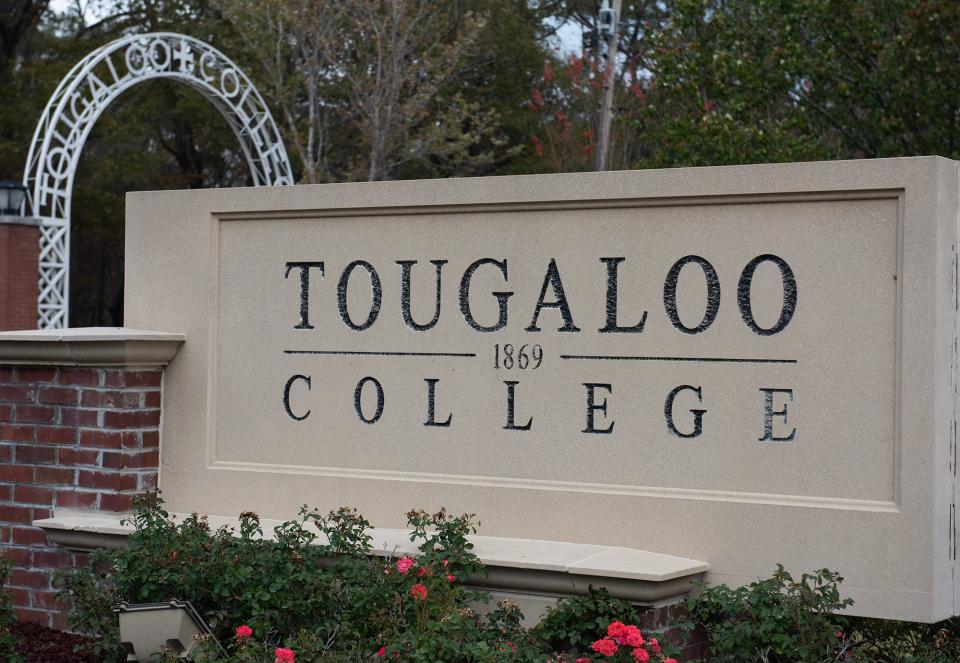
Tougaloo College, previously named as Tougaloo University, is a private historically Black college that sits on 500 acres of land on the northern edge of Jackson.
Originally established in 1869 by New York based Christian missionaries, the building acted not as a university but as a catalyst for the education of freed slaves and their offspring.
Since then, the school has seen expansion in its facilities and operational funds over the years. According to the college's history page, the college "has continued to strive to create an environment of academic excellence and a campus of engaged learners."
But even with the college aiming for success, there have been challenges along the way, according to Tougaloo College Interim President Donzell Lee.
Changes in presidency: Tougaloo president steps down. 'It is time for another leader.'
“Tougaloo has consistently worked to contain costs while protecting our most important assets — our students, faculty, staff, and esteemed legacy of academic and social excellence,” Lee said. “However, our best efforts are insufficient.”
Lee said a current challenge at the institution is ensuring the financial barriers do not hinder a student’s access to education.
He said the college has held tuition spikes to a minimum by redirecting funds to alleviate financial burden on students. But with 80% of the school’s demographic coming from low-income families, students often require help from the college through scholarships to bridge their unmet financial needs.
However, even with a low estimated cost of tuition and fees at $29,634 compared to other private institutions in the state, students are often left with a financial gap of $5,000 and $10,000, causing them to rely heavily on loans to finance their education.
Lee said the institution “takes pride” in attracting some of the "best and brightest students" to its undergraduate program with the assistance of federal grants and work-study.
Yet, with Congress potentially cutting federal work-study programs and supplemental educational opportunity grants (SEOGs), institutions will have to find a way to replace the funding.
According to U.S. News data, Tougaloo had an undergraduate enrollment of 657 in the fall of 2022.
Named in Top 20 HBCU for 2021: Tougaloo College, Jackson State University among top 20 HBCUs nationwide in U.S. News rankings
Colleges will either rely on philanthropic support, or students will seek out loan programs. And if an institution doesn’t replace the necessary income, they will operate at a loss, which isn’t sustainable.
“Tougaloo is concerned with ongoing discussions about Congress imposing devastating cutbacks on Title IV funding and eliminating the U.S. Department of Education,” Lee said. "(This) would undermine education and adversely impact the nation’s economy.
“Institutions like Tougaloo College are known for helping students of color access affordable and quality higher education. Our educational mission will never change. We manage our resources to maintain the integrity of our academic programs and provide transformative learning experiences.”
Mississippi College
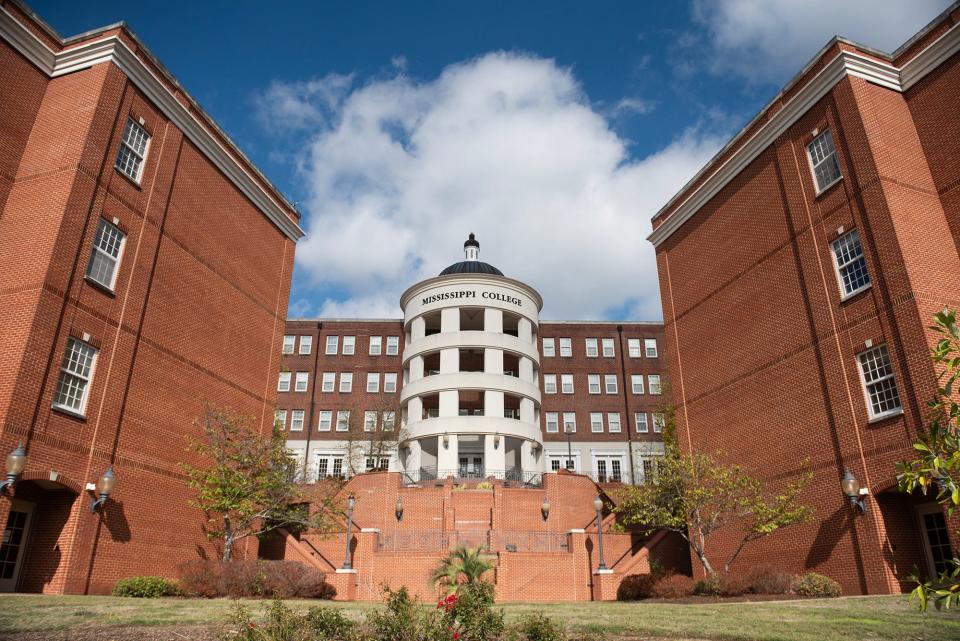
Mississippi College is a private Baptist university in Clinton. Founded in 1826, the college is the oldest institution of higher learning in Mississippi and was the first co-educational institution in the United States to grant a degree to a woman.
President of Mississippi College Blake Thompson declined an interview but provided a statement via email stating that as the institution looks ahead for the college, they are thankful for where Mississippi College currently stands.
“Our university has built a strong endowment for its size, and this fall, we welcomed the largest incoming class ever,” Thompson said. “We're excited about the journey ahead, staying dedicated to academic excellence and our mission rooted in the cause of Christ."
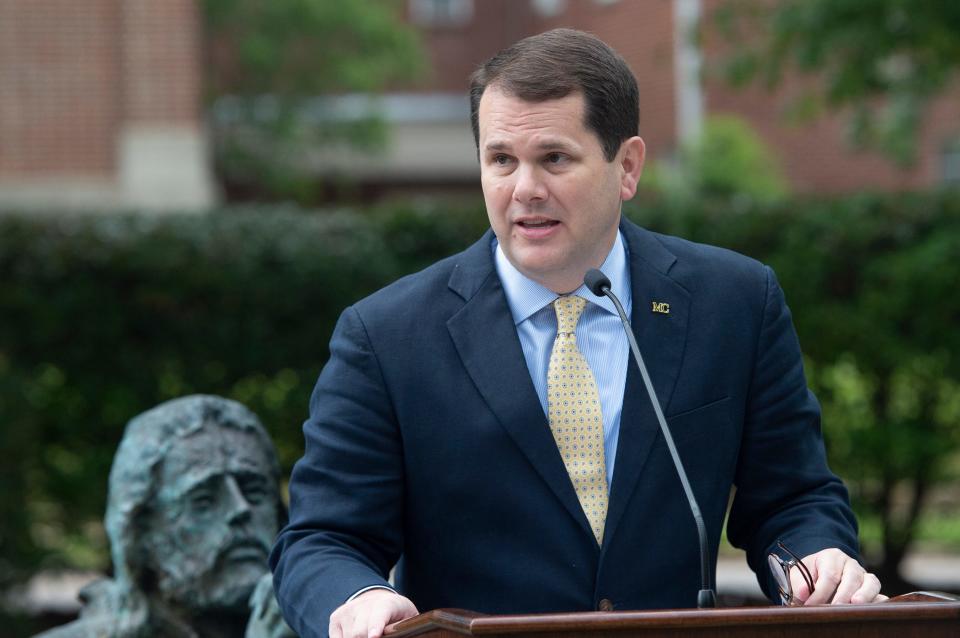
Here are the endowment numbers from 2017 to 2021, the last year publicly available through 990 forms required by non-profits to file:
2021: $93,536,425
2020: $99,527,049
2019: $81,138,471
2018: $80,010,351
2017: $79,027,867
According to the National Center for Education Statistics in Fall 2022, the acceptance rate of Mississippi College is 40% and the yield (enrollment rate) is 39%. The average graduation rate is 62% and 31% of students have transferred out from the school.
According to U.S. News data, Mississippi College had an undergraduate enrollment of 2,396 in the fall of 2022.
Rust College
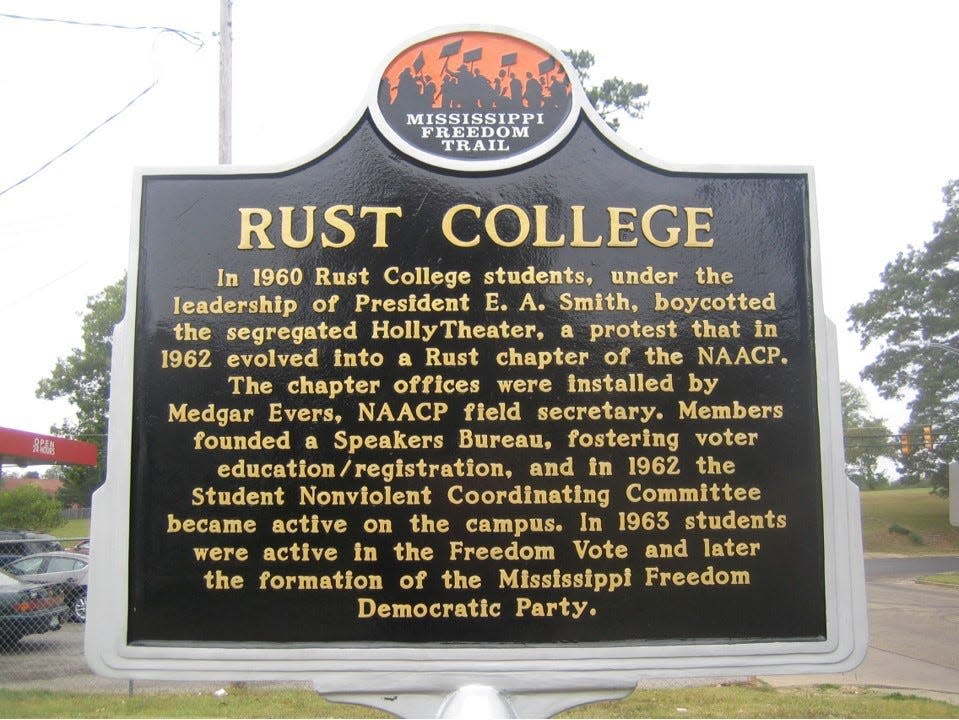
Founded in 1866, Rust College is the second-oldest private college in the state. The historically Black college is located in Holly Springs.
Interim President Dr. Robert M. Dixon declined an interview but did provide a statement via email stating Rust College “is not experiencing the financial challenges” in relation to Birmingham Southern College.
“Rust College remains a solvent and vibrant member of the higher education community in Mississippi,” Dixon wrote.
According to the National Center for Education Statistics in Fall 2022, the acceptance rate of Rust College was 79%, while the yield (enrollment rate) was nearly 10%. The average graduation rate was 25% and 5% of students have transferred out from the school.
No data was reported for the college's endowment at the end of the year for 2020 to 2022.
According to U.S. News data, Rust College had an undergraduate enrollment of 768 in the fall of 2022.
Blue Mountain Christian University
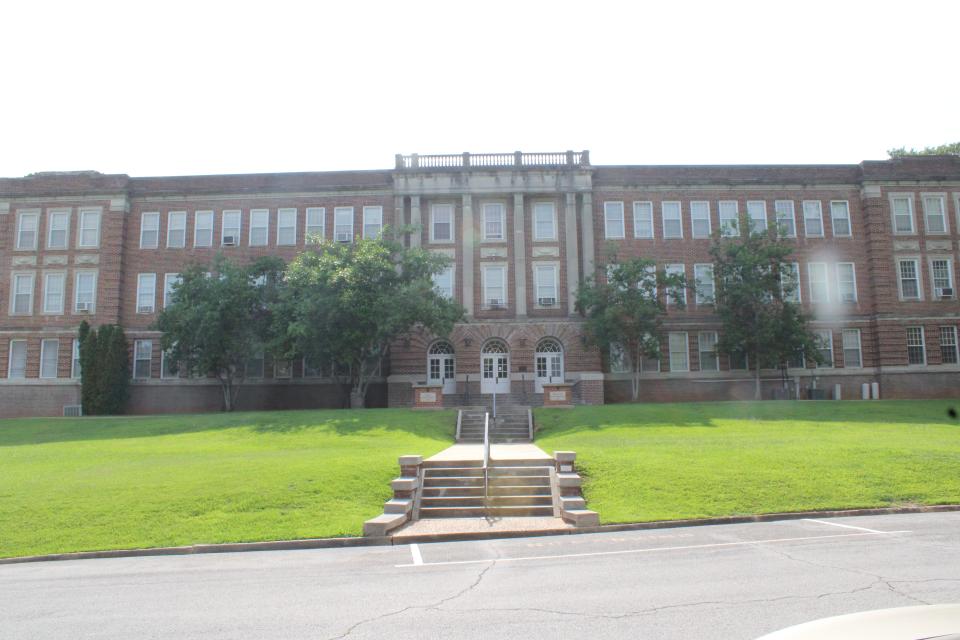
Blue Mountain Christian University, formerly known as Blue Mountain College, is a private four-year Baptist college in Blue Mountain.
The university was originally founded as a women's college in 1873, until the college's board of trustees voted unanimously for the college to be coeducational in 2005.
In a statement provided via email by President Barbara McMillian, she said that addressing the challenges that currently face institutions of higher learning requires being especially responsive to the needs of our constituents.
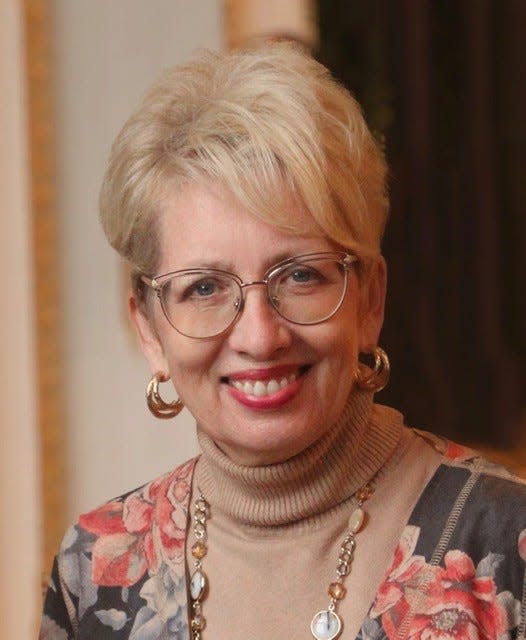
"For example, at Blue Mountain Christian University we have responded to the critical nursing shortage by launching a BSN and an RN-BSN program just this year," McMillian said. "We will continue to be mindful of ways in which to serve our community while remaining faithful to our mission."
Here are the endowment numbers from 2017 to 2021 from the university's 990 forms:
2021: $18,062,246
2020: $20,605,815
2019: $19,185,526
2018: $19,900,336
2017: $17,453,484
The acceptance rate at Blue Mountain was 96%, while the yield (enrollment rate) was 51%, according to the National Center for Education Statistics in Fall 2022. The NCES data also showed the average graduation rate was 39% and nearly 45% of students transferred out from the school.
According to U.S. News data, Blue Mountain had an undergraduate enrollment of 892 in the fall of 2022.
This article originally appeared on Mississippi Clarion Ledger: Private liberal arts colleges in MS discuss financial health

